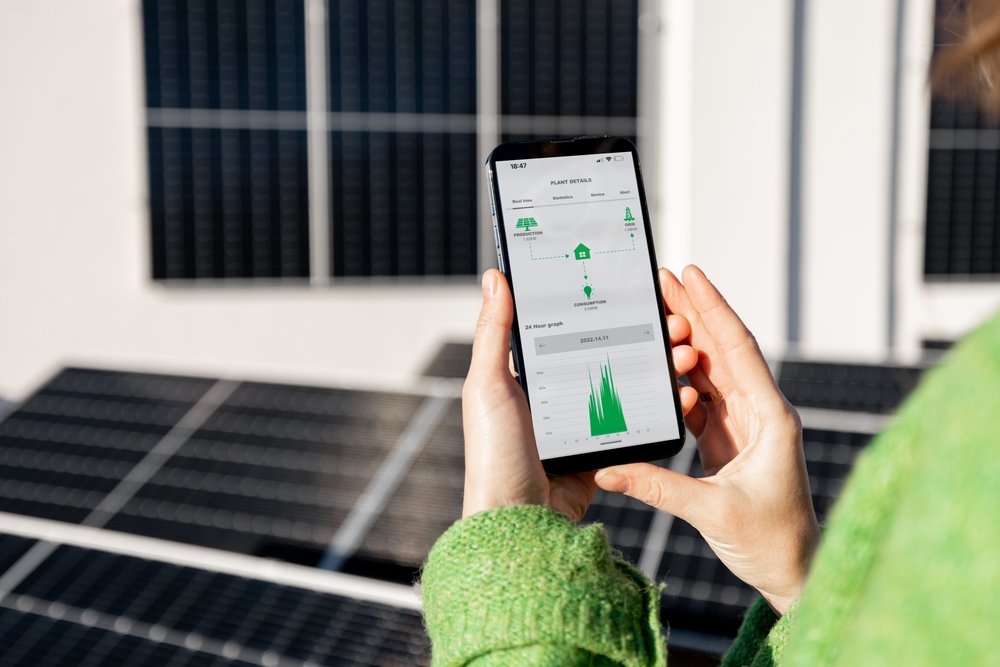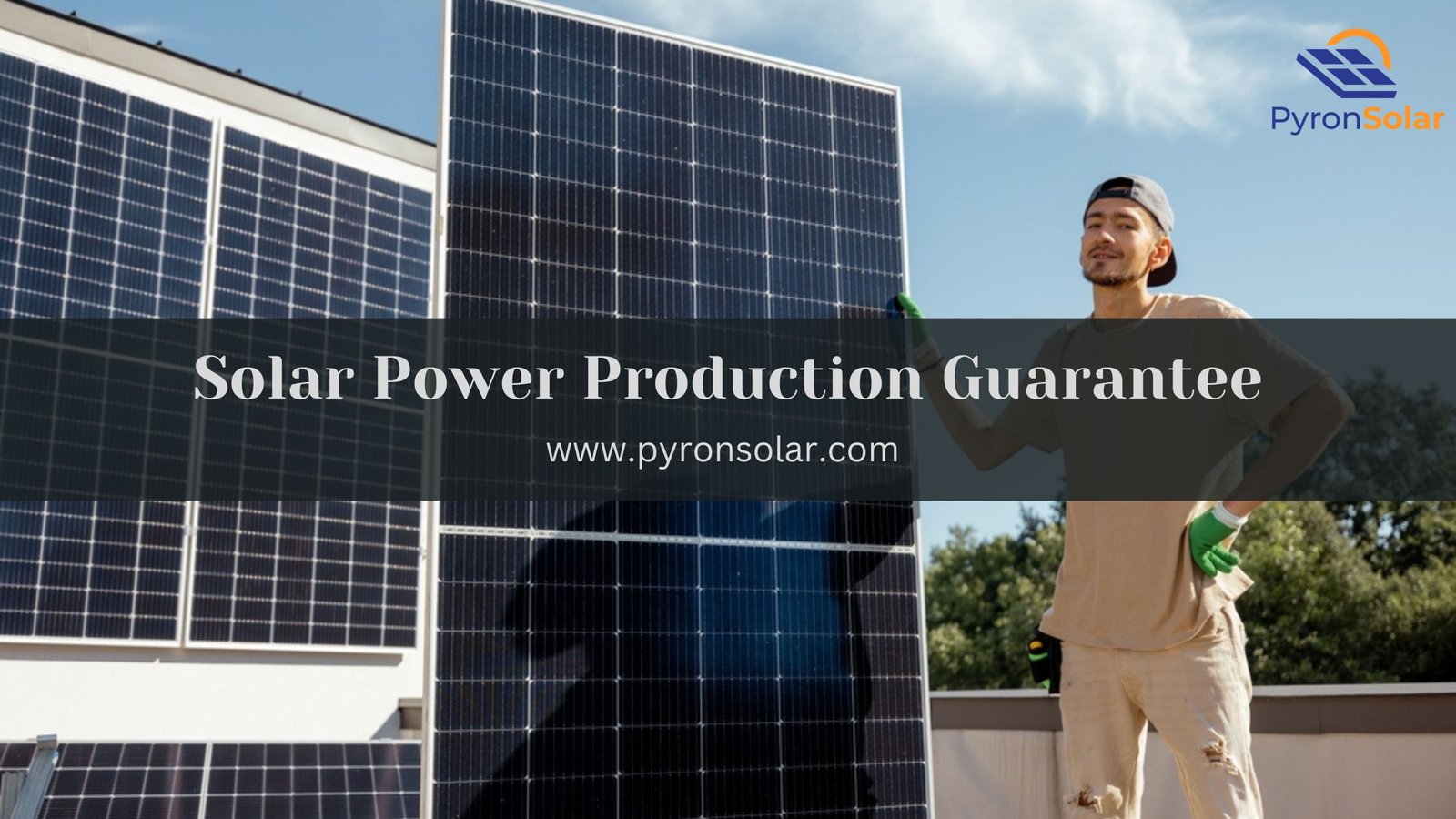Solar power production guarantee is a promising commitment given by solar energy companies to make certain that their solar panel systems are capable of producing a specific amount of electricity over a defined period. And, this guarantee has become increasingly important in the decision-making process for potential solar power customers, as it gives the assurance about performance and reliability of solar installations.
With the rising popularity of solar energy, nowadays, customers are well-informed and knowledgeable, making comparisons between multiple offers before each purchase. Amidst this competitive market, solar power production guarantee serves as a valuable differentiator that helps customers measure the expected ROI (Return on Investment) and the overall performance of their solar systems.

Now that you have an understanding of what is solar power production guarantee, Let us further discuss some critical scenarios. And, this includes what you should do when the system’s actual energy production is less than what was guaranteed or when your installer does not offer a production guarantee. But before that, you must also know the difference between solar production guarantees vs. solar warranties.
Understanding the Solar Power Production Guarantee
While you opt for a solar energy system installation, you receive a solar power production guarantee, which is a commitment put forward by solar installers or manufacturers. And, this guarantee is to assure that your solar energy system will produce a specified amount of electricity over a defined period. Indeed, this guarantee is more like a warranty that offers you peace of mind by protecting your investment against malfunctions or inadequate performances which can be due to various factors including equipment defects or installation issues.
Generally, a solar power production guarantee lasts up to 25 years, based on the installer and the specific contract terms. Hence, the duration is significant because it is reflected in the lifespan of solar panels, which is typically around 30 years.
All that you need to keep in mind is a longer guarantee period provides greater confidence in your investment because it goes along with the expected operating life of the system. However, many production guarantees offer a shorter duration which is just one year, and this is because they are primarily intended to cover the system’s initial performance after installation.
Here are some of the common terms and conditions included in these solar power production guarantees that include:
- Performance Metrics: Expected energy output from the solar system is specified in kWh (kilowatt-hours) for a certain period.
- Compensation for Insufficient Production: Installers have to legally compensate the consumer in various forms like cash payments or performance-enhancing additional services.
- Exclusions and Limitations: Few agreements include provisions that relieve the installer from liability for exceptional conditions like natural disasters or acts of God.
- Maintenance Requirements: Some guarantees clearly state that consumers must follow regular maintenance to keep the guarantee continuing to be valid, and this condition focuses on proper system upkeep.
Solar Production Guarantees vs. Solar Warranties
You must understand the major difference between solar production guarantees and solar warranties. Commitments made by solar installers about a solar energy system’s specified amount of energy for a certain period are known as the solar power production guarantee. On the other hand, manufacturer-provided assurance about performance and reliability is known as solar panel warranty.
One of the major differences is that in solar production guarantee focuses only on the energy output and does not cover physical components, but the installer compensates the homeowner for production fails or any differences. On the other hand, solar warranties focus on material defects, workmanship, and performance like a warranty might promise that panels will maintain 80% of their output even after 25 years.
Here are the aspects covered by solar production guarantee and solar warranties, as follows.
Aspects covered by Solar Production Guarantee:
- System Design
- Equipment Used
- Local Climate Conditions
Hence, the Production guarantee does not cover the physical components of the solar panel system.
Aspects covered by Solar Warranty:
- Product Workmanship Warranty
- Performance Warranty
What Happens When the System’s Actual Energy Production is Less Than What is Guaranteed?
When a solar energy system’s energy production is less than the guaranteed production levels, the installer will have to make sure of various compensatory actions.
Solar installers compensate for discrepancies between actual and guaranteed production levels through a structured approach by offering financial compensation. Compensations are calculated based on per kilowatt-hour, and as a homeowner, you will receive a fixed amount for each kilowatt-hour of energy not produced as promised.
Few installers might even extend the warranty or provide maintenance services so that they can address further issues leading to underperformance.
Types of compensation if solar system underperforms:
- Financial Payments: Installers might provide direct payments depending on energy production shortfall. However, the compensation amount will vary based on different installers and the terms of the contract.
- Repairs and System Upgrades at no Additional Cost: If underperformance occurs because of equipment issues, the installer will have to either repair or upgrade the system free of cost. Also, it can include replacements of defective panels or inverters so that the system meets the promised level of production guarantees.
- Extended Warranties: As a form of compensation, a few installers might extend the warranty period, providing additional peace of mind to homeowners regarding their investment.
Here are several steps that homeowners must take if their solar system’s production decreases after the guarantee period:
- Monitor Performance: Use the installer-provided monitoring tools or third-party applications to observe a drop in production.
- Contact the Installer: There are a few installers who offer ongoing support even after the guarantee period has expired.
- Seek Professional Evaluation: Homeowners can seek the help of an independent solar technician if the installer is not responding or the issue is unsolved.
- Review Maintenance Options: Regular system maintenance is to be followed by homeowners to prevent performance issues and extend the system’s lifespan.
What Should You Do When Your Installer Does Not Offer a Production Guarantee?
While you are opting for a solar energy system and the installer does not offer a production guarantee, it can raise serious concerns. However, there are a few reasons why some installers might not offer guarantees and what buyers should do in such situations.
Here are the reasons why some installers don’t offer guarantees:
- Business Model and Risk Management:
Installers might not offer a guarantee due to some inherent risks involved in their services, weather conditions, site-specific issues, and equipment performance that affect production results.
- Differences in Installation Quality:
The installation quality can depend on different contractors, and some of them lack the experience or expertise such that they confidently guarantee the production levels. It might be due to the installer’s inconsistent results in the past, so they avoid possible disputes by not giving guarantees.
- Market Positioning:
Few installers position themselves as the best budget-friendly option in the market, and they focus on cost savings by compromising service guarantees. As a result, more customers are attracted to lower prices but comes at the cost of no assurance in performance.
- Regulatory and Warranty Limitations:
If the used equipment doesn’t come with a strong warranty or if local laws impose restrictions, installers might opt not to provide additional guarantees.
If there is no production guarantee offered, then the buyers should follow these steps:
- Conduct Thorough Research:
Buyers should check reviews, ask for references, and evaluate the installer’s track record because by gathering knowledge about previous customers’ experiences detailed insights can be obtained.
- Request Detailed Proposals:
Asking for the performance metrics, installation process, and any possible issues helps buyers clarify the installer’s willingness to commit to the guarantee.
- Consider Alternative Options:
Buyers can explore various options by seeking installers who provide guarantee, or look for different technologies with better assurances.
Ray is an avid reader and writer with over 25 years of experience serving various domestic and multinational private and public energy companies in the USA.

